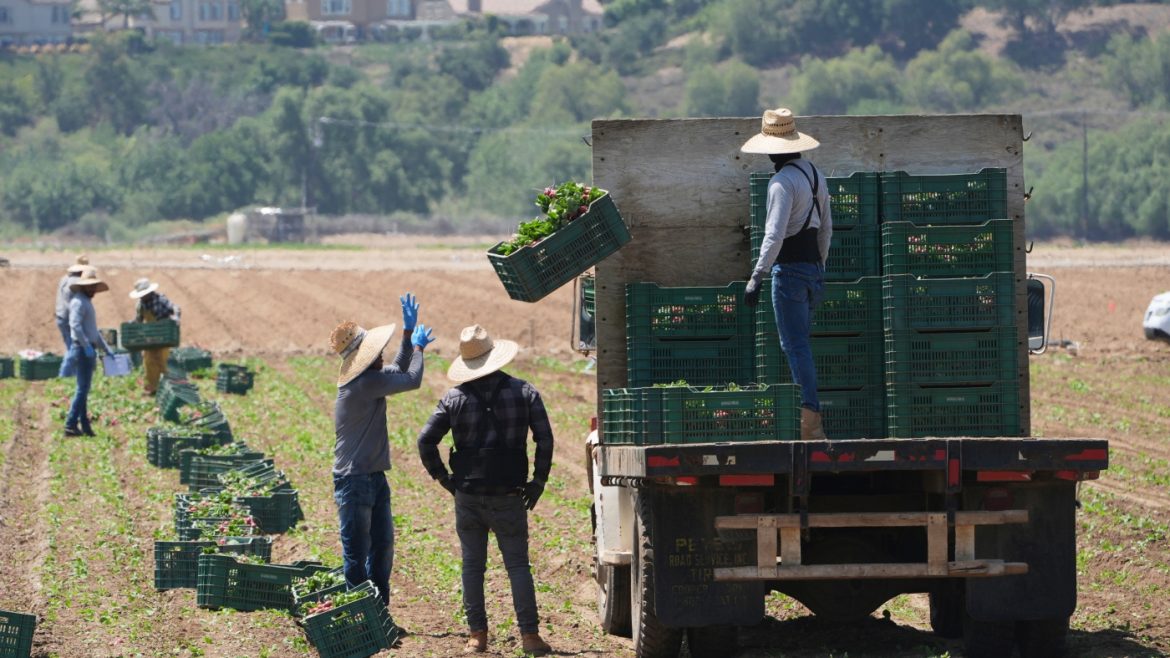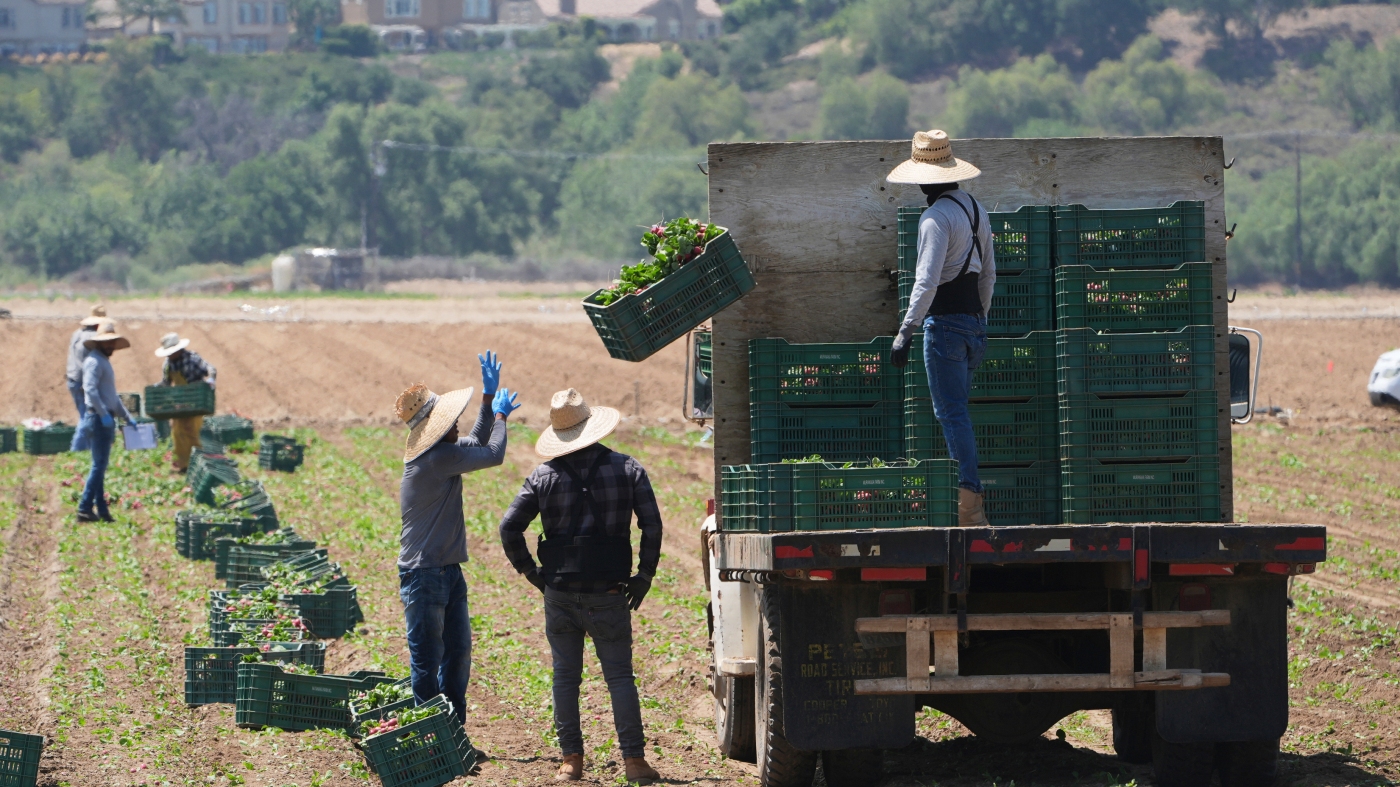Shifting Immigration Policies Under Trump and Implications for U.S. Agriculture
The recent surge in immigration enforcement under President Donald Trump’s administration has stirred considerable upheaval, particularly across the agricultural sectors which rely heavily on immigrant labor. However, as the administration faces mounting pressure from farming communities and industry groups, signals emerge suggesting a potential recalibration of immigration policies affecting farmworkers. This analysis explores the evolving landscape of immigration enforcement, industry responses, and the broader impacts on food supply chains in the U.S.
—
Trump’s Immigration Enforcement: Initial Crackdowns and Industry Fallout
Since the administration intensified immigration enforcement efforts, there has been a noticeable increase in raids targeting industries with high immigrant labor participation, such as agriculture, meatpacking, and hospitality. Reports detail:
– Immigration and Customs Enforcement (ICE) raids impacting meat processing plants and construction sites, often leading to operational disruptions.
– Enforcement sweeps expanding geographically into regions like California’s agricultural heartland, a vital hub for U.S. food production.
– Heightened uncertainty and fear among immigrant workers, many of whom lack legal status yet are essential to agricultural output.
These aggressive policies have generated widespread concern among farmers and associated groups. Industry leaders warn that the deportation strategies could induce labor shortages severe enough to impair productivity and jeopardize the stability of U.S. food supply chains.
—
Farmer and Industry Group Reactions: Calls for Restraint
Farmers’ organizations and agricultural advocates have become vocal in opposing the sweeping enforcement actions, highlighting the deep reliance on immigrant labor. Key points raised include:
– Nearly half of U.S. farmworkers lack legal immigration status, making enforcement raids especially disruptive.
– The risk of farm labor shortages leading to unharvested crops, loss of revenue, and broader economic ripple effects.
– Urgent appeals to the administration for more nuanced immigration policies that protect essential workers from deportation.
This advocacy aligns with a pragmatic recognition that the agricultural industry’s viability depends on maintaining a stable and legal workforce. Stakeholders emphasize that an abrupt removal of labor could destabilize not only farms but also related sectors like food processing and hospitality.
—
Signs of Policy Adjustment: Trump’s Public Signals
In response to industry outcry and logistical challenges, President Trump has publicly indicated a willingness to modify immigration enforcement tactics concerning farmworkers. Notable developments include:
– Statements acknowledging that immigration enforcement “has gone too far” when it impacts farmers.
– Promises of “changes coming” to the administration’s aggressive immigration policies with an eye to protecting vital food industry workers.
– Recognition that various industries’ concerns, particularly from agriculture and hospitality, could shape forthcoming adjustments.
Such signals suggest a strategic pivot aiming to balance enforcement priorities with sector-specific economic realities. While deportations may continue broadly, exemptions or moderated approaches for key agricultural labor pools appear increasingly likely.
—
Wider Implications: Food Security and Economic Stability
The intersection of intensive immigration enforcement and labor-dependent industries like farming reveals complex challenges with far-reaching consequences:
– Labor shortages threaten timely harvests, directly affecting the availability and price of food commodities.
– Disruptions in meat processing and dairy farming sectors compound the risks to supply continuity.
– Hospitality and related service industries also face workforce shortages, amplifying economic stress.
The urgency expressed by farm groups to avoid a “mass deportation” scenario underscores broader food security concerns. Maintaining a reliable workforce is pivotal not only for farmers’ livelihoods but also for shielding consumers and the economy from shocks stemming from labor disruptions.
—
Conclusion: A Crucial Crossroads for U.S. Immigration and Agriculture
The unfolding narrative reveals a critical juncture where immigration enforcement policy intersects with the practical realities of the U.S. agricultural economy. President Trump’s move toward signaling potential policy shifts reflects an acknowledgment of this delicate balance. How these adjustments manifest will be vital for preserving the nation’s food production capabilities, supporting immigrant workers integral to these systems, and ensuring economic resilience in a sector foundational to American life.
As the debate continues, the challenge lies in crafting immigration enforcement that secures borders without sacrificing the operational stability of industries dependent on immigrant labor. The months ahead will be decisive in shaping the trajectory of U.S. immigration policy’s impact on agriculture and, by extension, on national food security.


